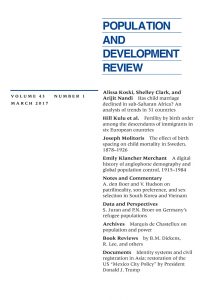Scientific Research or Illegal Operation?

The Yushin Maru No.2 catcher ship attempts to transfer minke whales to the Nisshin Maru factory ship, leaving a trail of blood in the water. © Kate Davison/Greenpeace
Scientists used genetic analyses to connect meat from sushi restaurants in the United States and South Korea to whales captured under the Japanese whaling program. According to the scientists, the Japanese engaged in illegal trade of endangered species.
Although an international moratorium prohibiting commercial whaling was established in 1986, an exception enabled Japan to slaughter hundreds of whales per year for the purposes of “scientific research”. Using the disguise of “scientific research”, the Japanese captured whales that were in danger of extinction and then sold the whale meat on the world market.
This month, the United States Delegation to the International Whaling Commission considers whether to permit commercial whaling quotas in Japan, Iceland, and Norway. Wendy Elliott from the World Wildlife Fund explains: “Essentially what the compromise would do is allow commercial whaling in the Southern Ocean. This is a designated whale sanctuary, it’s one of the key places in the world for whales – if there is one place on earth where whales should be protected it is there.”
Environmental sociologists should encourage the International Whaling Commission to strengthen the international moratorium on commercial whaling and to reject commercial whaling quotas. Environmental sociologists also should collaborate with organizations, such as Greenpeace, that are actively combating the proposal on commercial whaling quotas.
The Oscar award-winning documentary, The Cove, exposed the Japanese fishing industry for herding dolphins into a hidden cove, slaughtering the dolphins using spears and knives, and then selling the dolphin meat on the world market. Interestingly, the fishing industry sold the dolphin meat as counterfeit whale meat from larger whales in order to make higher profits.
The Cove illustrates that the Japanese engage in illegal fishing operations in order to generate profits on the world market. Environmental sociologists might raise the question: Is the scientific research mentioned above a cover for an illegal, environmentally unsound, and financially profitable operation?
![]() “Obama: Keep Your Promise to Save the Whales” By Greenpeace
“Obama: Keep Your Promise to Save the Whales” By Greenpeace
![]() “Whale Defenders” By Greenpeace
“Whale Defenders” By Greenpeace
![]() The Cove Directed By Louie Psihoyos
The Cove Directed By Louie Psihoyos

















1540-6237/asset/SSSA_Logo-RGB.jpg?v=1&s=c337bd297fd542da89c4e342754f2e91c5d6302e)
For a nation that did relatively minor whale research before the 1986 ‘zero quota’, Japan suddenly found a reason to get very interested in research. For the 35 years prior to 1986 Japan ‘reportedly’ killed 800 whales [23p.a] for research purposes. From 1986 the ‘reported’ tally stands at just under 19,000 whales, a large number from endangered species or endangered stocks [populations]. The there is the IUU catch [incidental-unreported unregulated] from such things as ‘by-catch’ net entanglment and probably targeted kills. This is estimated to match the so-called’ regulated -research catch. Japan is also in violation of many treaties, conventions and regulations-especailly in the southern ocean. It’s research quota is a clear breach of rights of Article VIII of the Whaling Convention.
In August 2006, investigations revealed that Japan had been illegally overfishing for Southern Bluefin tuna over a period of 20 years, taking 178,000 tons of tuna above what was allowed. Southern Bluefin tuna is now considered critically endangered by the IUCN. Japan is now responsible for consuming 80% of the Northern Blue fin tuna population and recently blocked moves for this species to be classified as endangered by CITES.
One could be excused for calling Japan ‘global ocean pirates’.
If it were not for the actions of the Sea Shepherd Conservation Society much of Japans whaling operations would still be hidden from the world.
The only scientific findings these poachers have learned is the whales eat fish.
The fact that the International community stands by and lets this illegal hunting of whales by the Japanese continue, just shows how countries can be “bought”. Negotiations under the table are the rule of order.
These hunters were in the marine sanctuary in Australian waters just recently. The Australian coast guard did not escort them out, only the Sea Shepherd Conservation Society and they did a fine job!!!!